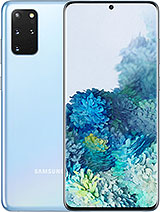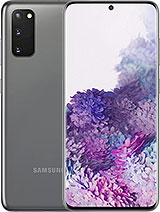Samsung Galaxy S20 vs iPhone 11: Which to buy? By Pocket-lint
Hey guys come here from pocket-lint and the year is 2020, and that means for the best part of 11 years, Apple and Samsung have been going head-to-head trying to release the best possible flagship smartphone for you and now, while competition and prices have increased significantly since the early days, the two companies are still very popular choices, so we decided we'd, compare the iPhone 11 and the galaxy s 20, there's no plus no max, no ultra, just the Box standard smartphone from each range to try and decide which one is the best value for your money. So, let's get into it. So it starts with design and going over some basics. Both phones are glass on the back metal on the edges and water and dust resistant up to pretty much the same levels, IP 68 to be exact, and that means they can survive your daily spills, the occasional rain or drop the toilet now being shiny glass, they're, both kind of prone to attracting fingerprint smudges too. But there are a couple of key differences. You noticed when looking at and holding the phones in the hand the galaxy s 20 feels generally a bit more comfortable because it's narrower.
That means when it comes to typing messages, one-handed, there's a lot less stretching and maneuvering to keep things flowing. Apple's phone is also noticeably heavier in the hand as well now, depending on which side you're looking at each phone has its aesthetic appeal. Apple has made a bit more of an effort with the design of the camera unit having individual metal rings around the cameras and housing it in a glass panel that blends really nicely into the back. Samsung just wiped a black rectangle on the back and called it a day on the front, though, which is the side you're going to be looking at 99% of the time that display taking up so much space with those skinny, bezels and minimal camera cutout is a lot more visually appealing on the Samsung. The iPhone has thicker bezels and an obstructive notch, but we'll come back to that a bit later, because it does have its definite plus points now side by side.
There's only really one winner here when it comes to how content looks on the display. Samsung screen might be narrower and a little smaller, but it makes up for it in brightness contrast and color reproduction. It's easily one of the best screens on any smartphone. So for being the latest breed of AMOLED blacks, the super dark and inky wild colors are vivid and details are really sharp, even in its default full HD mode, crank it up to quad, HD plus, and it gets sharper. But really it's plenty crisp enough as it is, and with a hundred and twenty Hertz refresh switched on it gets smooth and fluid to the iPhone.11 screens is a bad, though, for an LCD. It delivers colors really well.
Contrast is good and details are relatively sharp. A lot of the time. Colors appear more natural, to which some of you might actually prefer so blues, don't get overly blue in the sky and Red's. Don't get overly red. It's really preference here, but we would say the Samsung screen is the best overall now on to the camera, and this is perhaps where it gets a lot more interesting.
There are some quite clear differences here in terms of results and what you can do with them. Samsung has three cameras on the back, and that means, as well as the regular and ultra-wide cameras. You also get a telephoto zoom, which lets you get really close to objects far away. Although the further you zoom, the more the photos, tend to like detail and get a bit soft, but it does mean you get a much more versatile system to get the three cameras on an iPhone. You have to go for the pro model, which is a bit more expensive.
End results for wider and standard shots, like landscapes are pretty similar on both phones in daylight, with subtle differences in color saturation shadows and highlights Samsung's, arguably, is a little more saturated again and also with slightly higher exposure in the highlights taking photos close up, though, and you see, Samsung has a much shallower depth of field for whatever reason and some more extreme blur starts much closer to the subject in focus at the front. That's not always a good thing. It kind of confuses the depth a bit too much in night mode. The two phones are quite different. The iframe seems to take less time to actually snap and process the image, and when it does, it seems to do a better job of white, balancing out the different parts of the image and bringing in more light, but it's a much of a richness really.
In all truth, we feel both cameras will offer you something you'll enjoy. If you want more consistent results and better low-light performance in night mode, the iPhones don't want to go for, but if you want more versatility and the ability to zoom into photos without losing too much detail, Samsung again is a great choice. Now of the two phones, the iPhone is the one that will likely last you the longest in terms of battery life on an average day, we'll get to bedtime with about 40 or 50 percent left over where the Samsung will be at about 40 percent. Maximum we've been pleased with both, though in fact, Samsung's is more than capable of getting through a full workday without a problem, and both can charge either wirelessly or using a cable, but it is worth noting that Samsung's phone comes with a 25 watt, fast charger in the box, meaning it'll fill up quickly. Now it's a similar story with daily performance and speed.
Both phones really feel quick and fluid, and they load apps without any problems at all where you'll notice. The difference, though, is in data and cellular speeds, at least, if you're, in a 5g area, with a 5g plan, the s20 is 5 G on the iPhone 11. Isn't there are other things to consider here as well, like unlocking the phone, it's a little more convenient on the iPhone, because that notch in the face ID makes it really easy to just lift your phone up and unlock it with Samsung's. The ultrasonic fingerprint sensor we found is mostly okay, but there are times when it doesn't recognize your thumb, and there are other times when the anti-accidental touch protection comes on the touchscreen and doesn't let you unlock the phone unless you slide a little padlock down it, which makes things a little more obstructive in terms of software. It's Android versus iOS, but we won't go into too many details about that here.
What we will say is that Apple tends to support updates for much longer than Samsung phones do so, if you want to make sure you're always getting. The latest updates on your phone iPhones tend to last between four or five years before Apple stops delivering new software with Samsung. You only get a guarantee of two years and often times the software comes to your phone about three months later than when it actually came out from Google. So that's another thing worth considering, but in the end it may just come down to price. For you, the iPhone is actually a good hundred pounds or so cheaper than the s20.
But for that extra money you get a device with a better screen, more versatile camera, a better ergonomic design and fast performance as well as 5g. But with that said, Apple Strength is always in the ecosystem. The add-ons for the iPhone like Apple Watch, air, pods and airdrop are all things that are worth thinking about that make the entire Apple experience really convenient. So what do you think? Will you be getting the s20 or the iPhone 11 or have you bought one already? Let us know in the comments below why you bought that particular one or why you're thinking the way, you're thinking we'd love to hear from you? I think cam I'm at Cam Button on Twitter. You can follow me there.
If you like this video, please do hit that thumbs up and hit subscribe. If you want to see more videos, I'll see you again soon.
Source : Pocket-lint


























